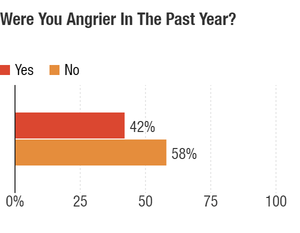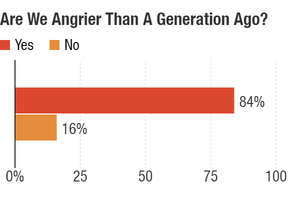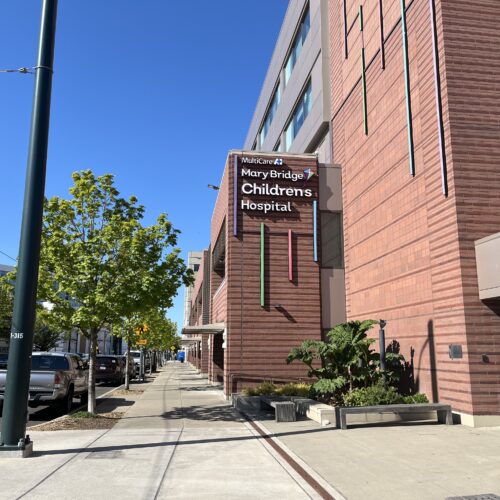
Poll: Americans Say We’re Angrier Than A Generation Ago
Read On
BY SCOTT HENSLEY
Do you find yourself getting ticked off more often than you used to?
If the answer is yes, you’re not alone.
Some 84% of people surveyed said Americans are angrier today compared with a generation ago, according to the latest NPR-IBM Watson Health poll.
When asked about their own feelings, 42% of those polled said they were angrier in the past year than they had been further back in time.
Anger can have an effect on health.
“I think of anger as a health risk,” says Dr. Anil Jain, vice president and chief health information officer at IBM Watson Health. “The fact that the survey showed that we have a generation of Americans who believe that they are more angry than they were a generation ago tells me that this is going to lead to some consequences from a health point of view.”
What makes people mad?
Look, we could ask only so many questions about that, so don’t be angry with us.
But we wondered, what about the news? Is that a factor?
The poll found that 29% of people said they were often angry when checking the news. Another 42% said the news sometimes made them angry.
Older people — age 65 and up — were a little less likely to say that they were often angry when checking the news. Only 21% of seniors were in this category, compared with 38% of people younger than 35.
There was a similar difference in reactions to social media. Only 7% of people 65 and above said they were often angry when using social media, compared with 18% of people under 35.
The poll found that seniors are much less likely to use social media, however, with 28% saying they don’t use social media at all, compared with only 2% of people younger than 35 not using it.

In a related question, we asked if people are more likely to express their anger on social media than in person. Overall, 9 in 10 people said that was the case. Perhaps that result is no surprise, but the near unanimity of the opinion on that score seems worth noting.
This year, we took a look at anger in a series of storiesthat explored the evolutionary roots of anger, the contagious nature of anger in real-life social networks and how you can name your personal anger to help control it. That last story might be helpful after reading this one.
Finally, the poll asked if people think anger is a negative emotion. Almost 7 in 10 said it is. But 31% said that isn’t the case. In some instances, as our anger series found, getting mad may be motivating and help lead someone to action.
The nationwide poll collected responses from 3,004 people during the first half of November 2018. The margin of error is +/- 1.8 percentage points.
You can find the full set of questions and results here.
Copyright 2019 NPR.
Related Stories:

Voucher program provides free counseling for farmers
Washington State University offers a Farm Stress Counseling Voucher program for farmers. Roni Ryan, pictured, is one of the farmers who has received counseling from the program. (Courtesy: Roni Ryan)

Bills to allow some, regulated access to psilocybin unlikely to move forward
Washington state lawmakers still can’t pass bills to allow for some legal access to psychedelics.
With Feb. 21 as the cutoff for bills to move out of policy committees, two pieces of legislation that would have allowed regulated and supervised access to psilocybin for adults won’t be moving forward — Senate Bill 5201 and House Bill 1433. The bills faced opposition from state psychiatric and medical groups, as well as advocates for psychedelics.

‘It’s a crisis’: How the shortage of counselors is affecting the rural Northwest
In small towns, such as Walla Walla, Washington, behavioral health care providers can be hard to come by. (Credit: Susan Shain / NWPB) watch Listen (Runtime 3:49) Read By Rachel















